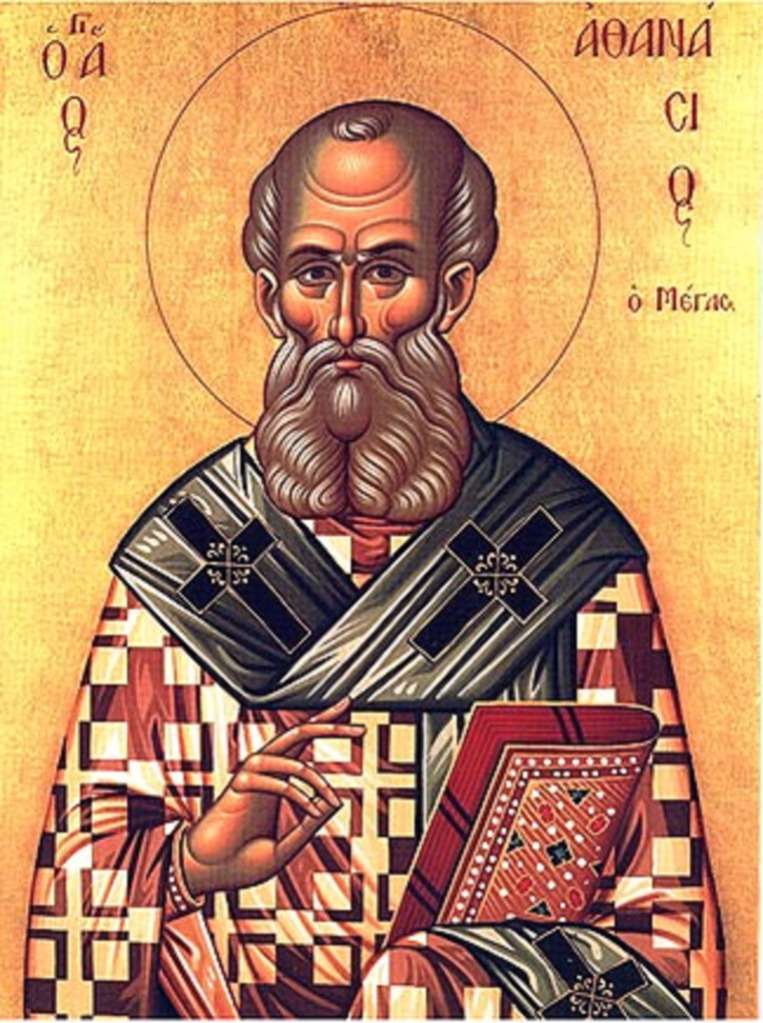“The Weekend Wanderer” is a weekly curated selection of news, stories, resources, and media on the intersection of faith and culture for you to explore through your weekend. Wander through these links however you like and in any order you like.
 “When Words About God Become the Word of the Lord” – I think a lot about preaching and how the words of human communicators can possibly express the wonders of the Scripture given us by God. Not only do I think a lot about preaching, but I also preach quite a bit and write about preaching. Because of this, I don’t lightly recommend articles about preaching. This one by Nathan Hatch, President of Wake Forest University, is well worth the read.
“When Words About God Become the Word of the Lord” – I think a lot about preaching and how the words of human communicators can possibly express the wonders of the Scripture given us by God. Not only do I think a lot about preaching, but I also preach quite a bit and write about preaching. Because of this, I don’t lightly recommend articles about preaching. This one by Nathan Hatch, President of Wake Forest University, is well worth the read.
 “Pastors Launch Church-Planting Network for ‘Black and Brown Neighborhoods'” – Over the last few years, a good friend of mine, Kurt Owens, has been working on new initiatives for equipping and raising up central city church planting. He found that many of the predominant models of approaching church planting really do not work well in non-suburban, non-white contexts. I applaud his work and try to encourage him. I was encouraged when I saw that Thabiti Anyabwile was also working on something similar with his new initiative, The Crete Collective.
“Pastors Launch Church-Planting Network for ‘Black and Brown Neighborhoods'” – Over the last few years, a good friend of mine, Kurt Owens, has been working on new initiatives for equipping and raising up central city church planting. He found that many of the predominant models of approaching church planting really do not work well in non-suburban, non-white contexts. I applaud his work and try to encourage him. I was encouraged when I saw that Thabiti Anyabwile was also working on something similar with his new initiative, The Crete Collective.
 “Carl Lentz and the ‘hot pastor’ problem” – Last week I posted the disappointing news about Hillsong-New York’s pastor, Carl Lentz, being fired after having an extramarital affair. At Religion News Katelyn Beaty offers a well-written, entertaining, and challenging read about Lentz, megachurch Christianity, and men’s and women’s roles within evangelicalism. The last line will leave you thinking. Another take on the same topic comes from Carey Nieuwhof in his blog post, “Some Thoughts on Why Megachurch Pastors Keep Falling.” Another article that I posted a couple of weeks ago is also relevant here, Andy Crouch’s “Spiritual Disciplines for Public Leadership.”
“Carl Lentz and the ‘hot pastor’ problem” – Last week I posted the disappointing news about Hillsong-New York’s pastor, Carl Lentz, being fired after having an extramarital affair. At Religion News Katelyn Beaty offers a well-written, entertaining, and challenging read about Lentz, megachurch Christianity, and men’s and women’s roles within evangelicalism. The last line will leave you thinking. Another take on the same topic comes from Carey Nieuwhof in his blog post, “Some Thoughts on Why Megachurch Pastors Keep Falling.” Another article that I posted a couple of weeks ago is also relevant here, Andy Crouch’s “Spiritual Disciplines for Public Leadership.”
 “Gardeners and Pilgrims: Reviving place in the Christian imagination” – I bookmarked this article at Comment several months ago, but returned to read it only this past week and found it particularly insightful and meaningful as I finished off a series on unity by looking at the new heaven and the new earth. In this article Wilfred M. McClay explores the loss of a sense of place that has accelerated because of technology and transience, considering how Christianity speaks into this loss in a way filled with tension between the now and not-yet. That description is a mouthful, but McClay’s essay will make you think about the way we live now.
“Gardeners and Pilgrims: Reviving place in the Christian imagination” – I bookmarked this article at Comment several months ago, but returned to read it only this past week and found it particularly insightful and meaningful as I finished off a series on unity by looking at the new heaven and the new earth. In this article Wilfred M. McClay explores the loss of a sense of place that has accelerated because of technology and transience, considering how Christianity speaks into this loss in a way filled with tension between the now and not-yet. That description is a mouthful, but McClay’s essay will make you think about the way we live now.
 “Friends and Letters: A Review of Dorothy and Jack: The Transforming Friendship of Dorothy L. Sayers and C. S. Lewis, by Gina Dalfonzo” – Alexandria Desanctis in The National Review: “Lewis, Tolkien, and the Inklings have been the subject of careful study and popular interest for decades, but thus far scholars have paid relatively little attention to the friendship between Lewis and another well-known contemporary of his, Dorothy L. Sayers. The mind behind the Lord Peter Wimsey detective series, Sayers was a fiction writer who, like Lewis, devoted herself also to the study of Christian theology and produced several works of apologetics. In a new book, Dorothy and Jack, Gina Dalfonzo delves into the correspondence between these two writers, which spanned more than a decade, beginning with a letter from Sayers to Lewis and ending with Sayers’s death.”
“Friends and Letters: A Review of Dorothy and Jack: The Transforming Friendship of Dorothy L. Sayers and C. S. Lewis, by Gina Dalfonzo” – Alexandria Desanctis in The National Review: “Lewis, Tolkien, and the Inklings have been the subject of careful study and popular interest for decades, but thus far scholars have paid relatively little attention to the friendship between Lewis and another well-known contemporary of his, Dorothy L. Sayers. The mind behind the Lord Peter Wimsey detective series, Sayers was a fiction writer who, like Lewis, devoted herself also to the study of Christian theology and produced several works of apologetics. In a new book, Dorothy and Jack, Gina Dalfonzo delves into the correspondence between these two writers, which spanned more than a decade, beginning with a letter from Sayers to Lewis and ending with Sayers’s death.”
 “The Case for One More Child: Why Large Families Will Save Humanity” – While the title may not immediately grab your attention, or may even put you off, let me encourage you to give this article by Ross Douthat in Plough a spin: “We lack a moral framework for talking about this problem. It would make an immense difference to the American future if more Americans were to simply have the 2.5 kids they say they want, rather than the 1.7 births we’re averaging. But talking about a declining birthrate, its consequences for social programs or economic growth or social harmony, tends to seem antiseptic, a numbers game. It skims over the deeper questions: What moral claim does a potential child have on our society? What does it mean to fail someone who doesn’t yet exist?”
“The Case for One More Child: Why Large Families Will Save Humanity” – While the title may not immediately grab your attention, or may even put you off, let me encourage you to give this article by Ross Douthat in Plough a spin: “We lack a moral framework for talking about this problem. It would make an immense difference to the American future if more Americans were to simply have the 2.5 kids they say they want, rather than the 1.7 births we’re averaging. But talking about a declining birthrate, its consequences for social programs or economic growth or social harmony, tends to seem antiseptic, a numbers game. It skims over the deeper questions: What moral claim does a potential child have on our society? What does it mean to fail someone who doesn’t yet exist?”
 “Time Touching Eternity: Preaching through the Christian Year” – My latest article at Preaching Today went live this week. In it I explore the ways in which preaching can benefit from following the Christian year. As we move through Thanksgiving to Advent and the beginning of the Christian calendar, I am so thankful to the editors of PT for giving me the opportunity to share some ways the rhythms of liturgical year have shaped my own spirituality and preaching.
“Time Touching Eternity: Preaching through the Christian Year” – My latest article at Preaching Today went live this week. In it I explore the ways in which preaching can benefit from following the Christian year. As we move through Thanksgiving to Advent and the beginning of the Christian calendar, I am so thankful to the editors of PT for giving me the opportunity to share some ways the rhythms of liturgical year have shaped my own spirituality and preaching.
Music: I.Erickson, “Drowning”
[I do not necessarily agree with all the views expressed within the articles linked from this page, but I have read them myself in order to make me think more deeply.]










